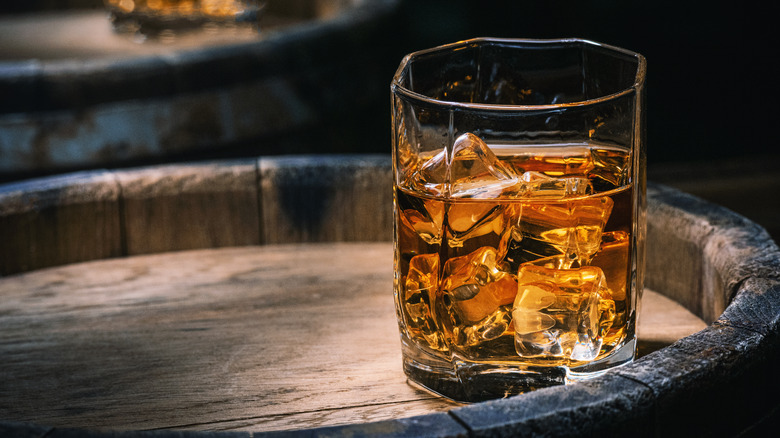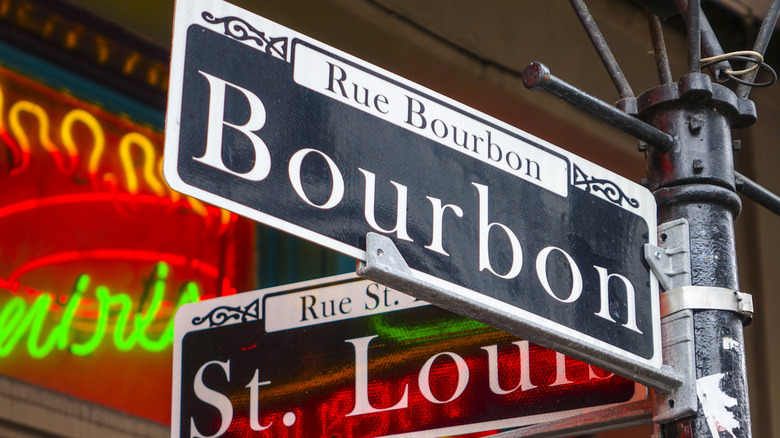Thomas Jefferson's Important Role In Bourbon History
When the Scots and Irish flooded into America in the 18th century, they were hunting down a whole new life among its rivers, prairies, and peaks. Yet there was one thing they refused to leave behind in the Old Country — and that was a good strong dram by the fireplace. In other words, they were going to recreate whiskey, whatever it took.
And as outlined by Flaviar, when the Revolutionary War ended in 1783, those same Scots and Irish immigrants traveled over the Appalachians from the South, bringing their whiskey-making secrets with them. But distilling the spirit wasn't without its challenges. For one thing, whiskey requires barley, but that didn't grow abundantly in the soil of their new homeland. So people got busy experimenting, mixing in native corn with wheat, rye, and barley — then aging it in barrels crafted from Appalachian white oak — to create a sweet golden liquid (via Whisky). Throw in sour mash techniques from beer-making Germans, and you've got bourbon, which appeared sometime in the 1780s. Granted, this new whiskey lacked the smoky, peaty, primordial taste of Scotch. But as explained by Whisky Advocate, there were ways around that, such as charring the oak casks to release flavors of vanilla and caramel.
But what about the name? Given that the House of Bourbon was actually the ruling French royal dynasty at the time, how did they become associated with homespun Blue Ridge Mountain hooch?
The link between bourbon and the French royal family
It might all be because of Thomas Jefferson. In fact, if it wasn't for the third president of the United States, the bourbon industry as we know it might not exist — ironic, considering that he didn't even like hard liquor and might be whirling in his crypt at the thought.
In the late 18th century, Jefferson was governor of Virginia, which at that time included Kentucky. According to Glass with a Twist, he began granting plots of land to settlers for growing crops. He called those farmlands Bourbon County as a tribute to the French royal family, who had been allies during the American Revolution. And as corn was one of the fastest-growing crops — plus the county was filled with Scots and Irish — it became a whiskey hub. That said, there's an alternative theory about how bourbon got its name. Apparently, Kentucky whiskey producers would ship barrels down the Mississippi to New Orleans, where the drink hit the bars of Bourbon Street (also named after the French royal family). The story goes that revelers named the delicious liquor after it.
Whatever the reason for its moniker, bourbon became the quintessential American spirit — born of Scots, Irish, and German skill, crafted from native crops and aged in local oak. Swirling around in that amber elixir is the longing of immigrants homesick for the Old Country and their faith that this strange new land would offer everything they needed.

